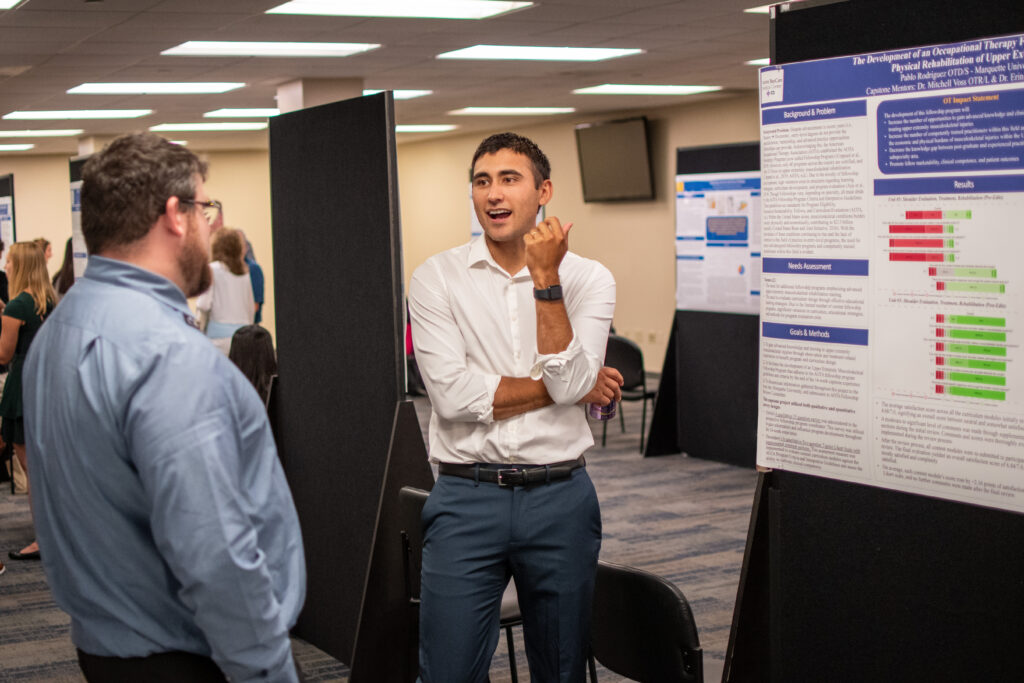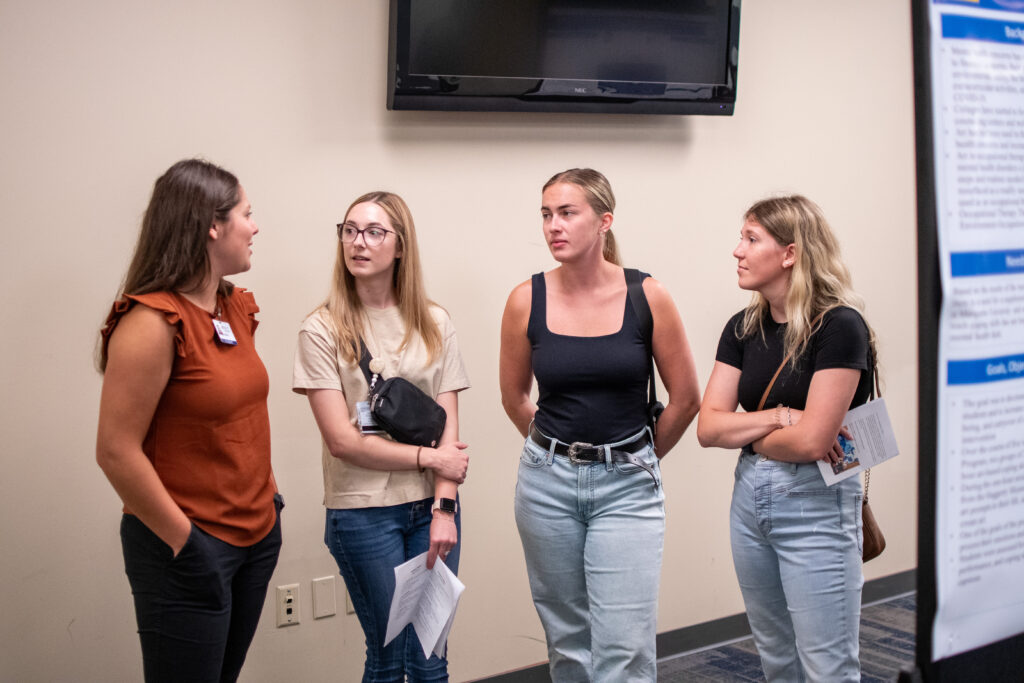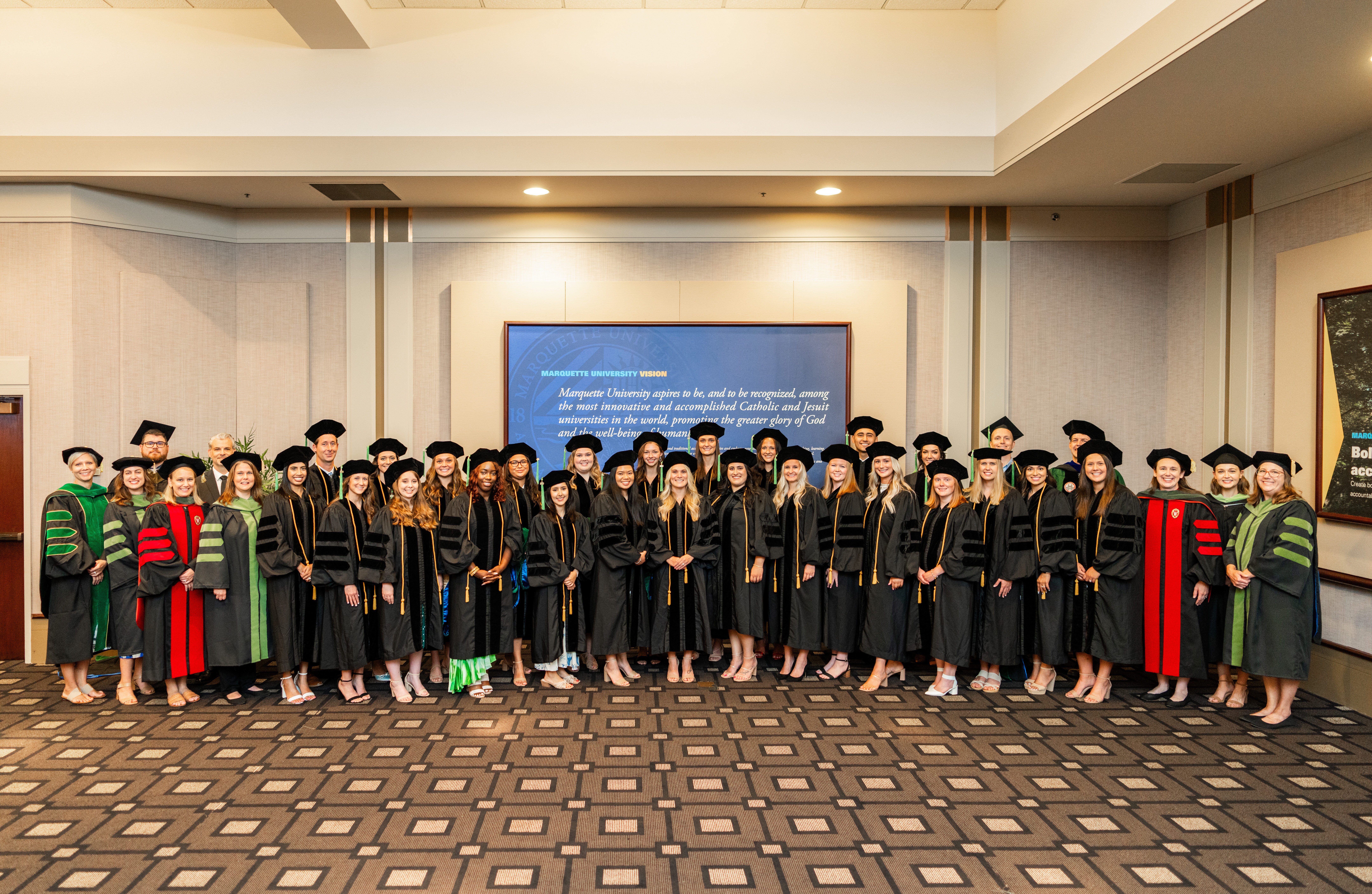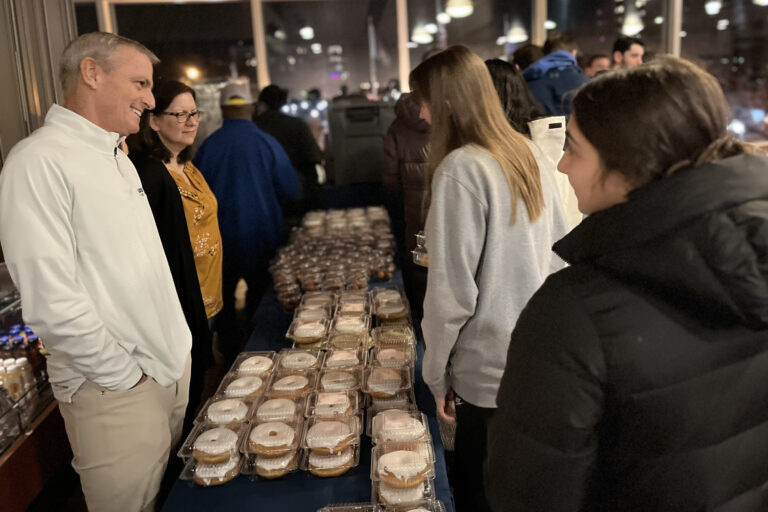While occupational therapy alumna Kailee Schraepfer, OT ’23, was searching for the right fit in a clinical professional program, she experienced a lack of interpersonal connection with many schools she interviewed with.
“I remember one interview I was so nervous, but once I got settled, I realized I didn’t want to attend that program because it felt like they didn’t want to get to know who I am as a person,” Schraepfer recalls.
That changed in 2019 when she met the faculty in Marquette’s occupational therapy program within the College of Health Sciences.
“My first encounter with the faculty made me feel right at home during my admissions interview,” Schraepfer says. “The interview was laid back and welcoming. The faculty drew me here to Marquette in that interview and allowed me to be comfortable in a new environment, growing and focusing on becoming the professional I wanted to be.”
Schraepfer’s experience is one of many among the occupational therapy doctorate program’s first graduating class, which will walk across the stage to collect their degrees in August. Since its inception, the faculty have been working diligently to make sure the growing program is tailored to students’ needs.
“I could tell it was going to be a close-knit group even during the initial interview,” Taylor Drost, OT ’23, says. “The fact that we were the first cohort was really something special. The faculty took us by the hand and for the past three years they’ve been supporting us through each semester.”

Faculty members felt it was important to create a welcoming environment to foster a growth mindset and facilitate critical curiosity in students as they develop their professional identities, says Dr. Michele Sheehan, clinical assistant professor and doctoral capstone coordinator.
“The students thrive knowing they have a network of support from faculty, staff and fellow students,” Sheehan says. “By creating a welcoming environment with familial energy, we have encouraged students to support each other and be ‘comfortable with the uncomfortable’ as they are pushed to excel in the profession of occupational therapy.”
For Tory Houdek, OT ‘23, a major differentiator was in the respect faculty members showed for students who had identified opportunities for program improvement.
“We were the guinea pigs and as with any new program there were things that needed to be ironed out,” Houdek says. “It goes to show how highly they regarded our opinions; that we would give them feedback and it was taken seriously. The faculty provided a supporting and trusting environment for us to learn and often implemented the needed changes in the very next semester after suggestions were made.”
Learning to provide and accept constructive feedback is a big part of professionalism and is necessary to excel in any practice, Sheehan says. As such, program faculty have embraced the idea of continual growth and development to create a program that excels in developing students who are positioned to be leaders in their field.
“To ensure we are meeting the needs of our students, we take into consideration their feedback on how to facilitate learning and foster a growth mindset,” Sheehan says. “We also compare their feedback to adult learning pedagogy to ensure that we are embracing our mission ‘to graduate students who are transformed by their education, and who will transform the world in which they live.’”
The investment in student success is part of the reason why the program recently received a seven-year accreditation period on its first attempt — a significant accomplishment.
“The department’s shared vision and dedication toward developing professional, practice-competent, and critically curious servant leaders has led us to achieving this great milestone,” says Dr. Christine O’Neill, chair of the occupational therapy department and program director. “But, ultimately, this is for our students. Current and prospective students can be assured that they are receiving the highest quality education in the discipline, and one that is unique to Marquette University.”

Capstone experiences marked by meaningful mentorship
This summer, all 26 students in the first graduating class began their required 12-week final capstone projects.
Some, like Pablo Rodriguez, OT ’23, knew exactly what they wanted to investigate through their capstone experience — his interest was piqued during the cohort’s first course in orthopedics.
“Something clicked for me in that class: I loved learning about the anatomy and physiology of hand function and how precisely detailed everything has to be to function optimally,” Rodriguez says. “I enjoy making splints for people and helping to restore upper extremity function; orthopedics was a different and exciting side of occupational therapy compared to other areas of practice.”
On site at Aurora Baycare’s Orthopedic and Sports Medicine Center in Green Bay, Wisconsin, Rodriguez is developing a novel fellowship program for the physical rehabilitation of upper extremity musculoskeletal injuries.
The project idea was spurred by a classroom discussion. It’s also something Dr. Mitchell Voss, adjunct professor of occupational therapy, had been considering; however, he lacked the time and resources to make it happen. Working with faculty across the department, Rodriguez spearheaded the effort.
If successful, the program will fill a critical need by increasing the number of fellowship training opportunities across the nation and producing clinically competent occupational therapists in this specialty practice area.
“Currently there are only 11 OT programs that are orthopedic based,” Rodriguez says. “This fellowship program will be a great way to not only impact the community by offering another form of therapy allowing patients to execute their daily occupations again, but it also impacts the OT profession on an organizational level by giving therapists knowledge in an area that isn’t always taught comprehensively at master’s and doctorate programs.”
He credits his faculty and clinical mentors for the opportunity.
“Mentorship gives practitioners confidence and allows them to take that next step,” Rodriguez says. “This fellowship program can guide those interested in or transitioning to orthopedics by promoting both individual and professional growth in a field they are passionate about.”

Focusing passions
Other students in the Marquette OT program understood where their passions lie, but just needed some guidance to focus their capstone projects. Schraepfer knew she wanted to work with children and to focus on fine motor skills — how to do that, exactly, was less certain to her.
Schraepfer sought the help of her adviser Dr. Ann E. Millard and capstone director Dr. Michele Sheehan for ways to best connect her interests.
“I started digging in and trying to find a way I could help these toddlers,” Schraepfer says. “What I found — thanks to the seed being planted by Dr. Sheehan — is that whether it was because of virtual learning in the pandemic, recent increases in technology use by toddlers, or perhaps both, young kids were lacking the necessary fine motor skills needed at their age.”
Unfortunately, there aren’t many occupational therapists in daycare centers, meaning Schraepfer might not be able to work directly with toddlers.
Thankfully, Schraepfer found a way.
“I learned that early childhood teachers aren’t receiving fine motor skill education and don’t know how to help the kids who are falling behind in their developmental skills,” Schraepfer says. “So, instead of helping the kids one-on-one, my capstone is focused on increasing the use of fine motor skill activities in preschool classrooms through teacher education.
“This way, teachers will be able to easily understand what they’re helping the students work toward and can implement these activities for years to come — hopefully helping a generation of kids.”
O’Neill commended the cohort on their unique journey to graduation, which included starting the program during the pandemic.
“The first cohort of any program does not have an easy road, facing obstacles in a new, developing curriculum, faculty and staff getting acclimated to the university, and much more,” O’Neill says. “I couldn’t be prouder of this first cohort of students for all the challenges they overcame through their three years here at Marquette. They grew in grace, service, resilience, knowledge and flexibility. All of these skills are crucial to being an exceptional occupational therapist.”
And seeing the students develop into caring and competent clinicians has been extremely rewarding for the entire program, O’Neill says. “It is a huge personal and departmental accomplishment to know that we were a part of challenging these students – to push themselves beyond what they thought they were capable of and to celebrate with them in their triumphs,” O’Neill says. “It is a powerful moment and one I will never forget.”



